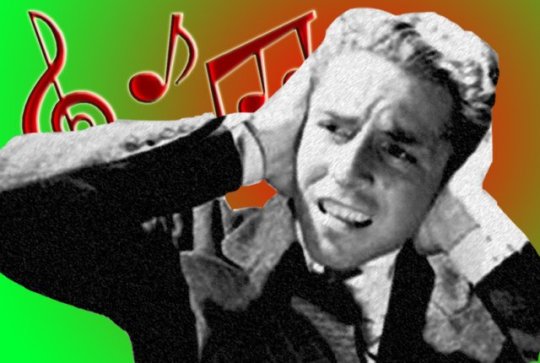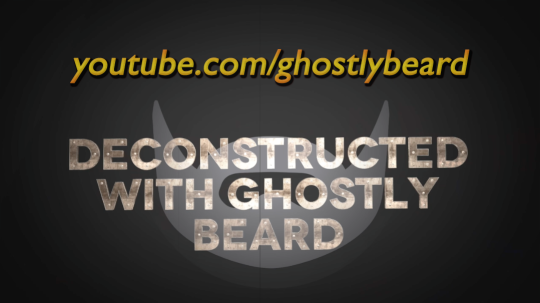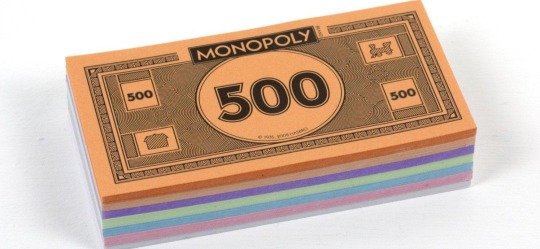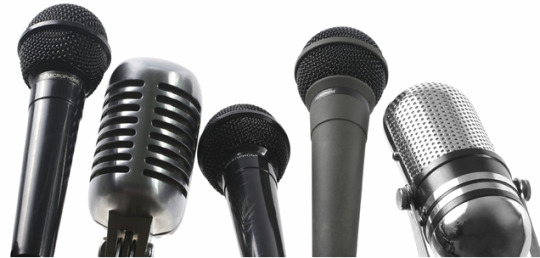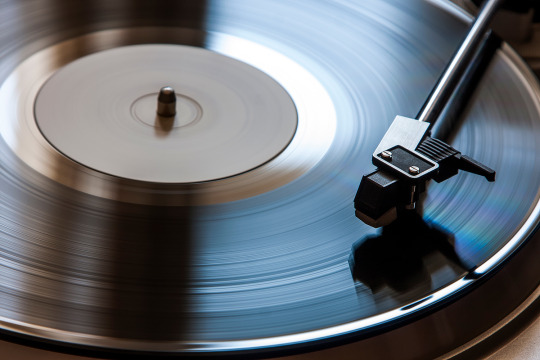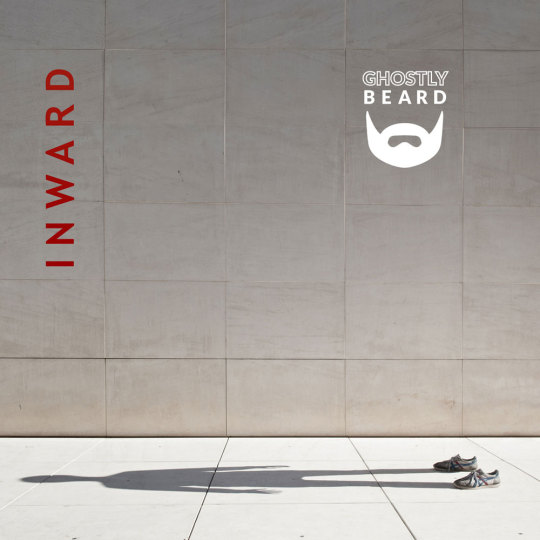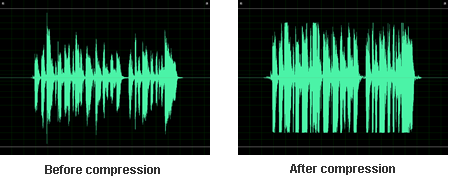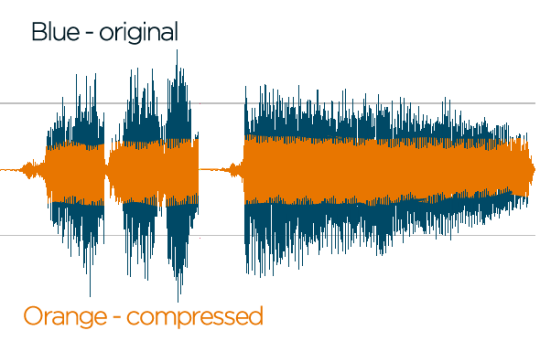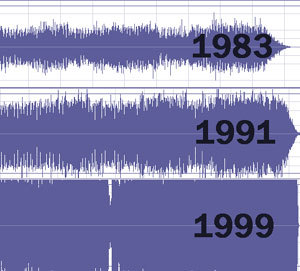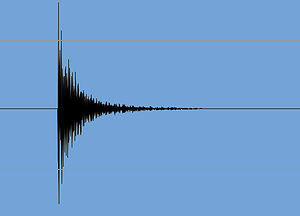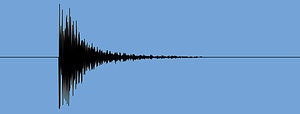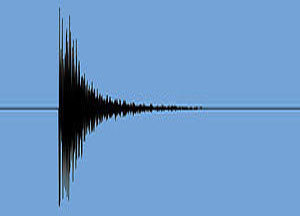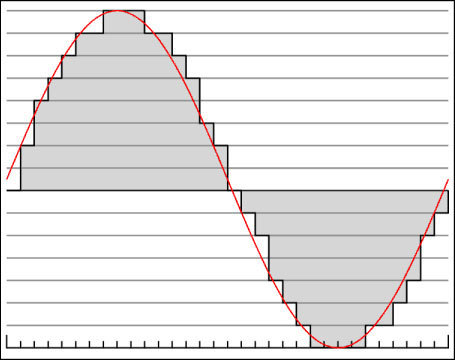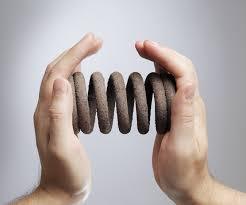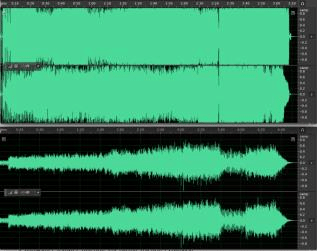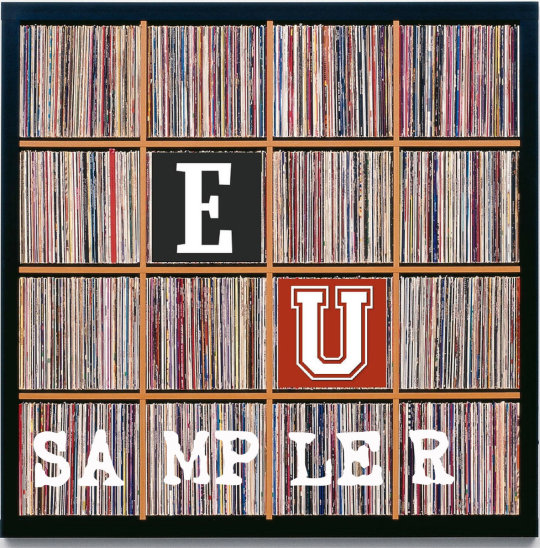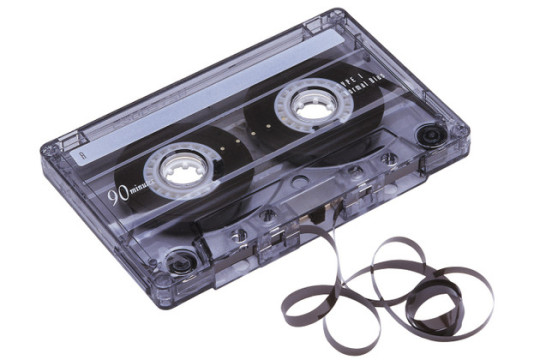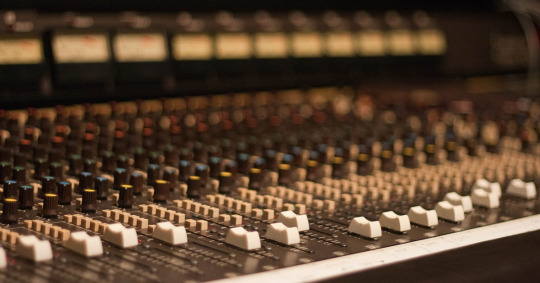
I’ve often heard the argument that production is the bane of “authentic” music and that one should not waste too much time to record and release music. This can be summarized as a “Get on with it and move on!” mindset (which I read someone say as a philosophy that I cannot say I adhere much with). Let’s take your iPhone, record your band practice and release that!
Is production bad?
Some will also argue that this is how it’s always been with early folk music and country music and their motto of “3 chords and the truth”… I would say that the 3 chords in that case hardly account for music, when what matters here is the poetry or the message, not really the music which is mostly used as a simple background.
There’s also two points raised by the proponents of the quick and dirty philosophy: 1/ look at punk music and how it effectively fought against the over-produced music of the late seventies (mainly hair metal and disco), and 2/ look at today’s top 40 music and how it makes up for its lack of substance by over-production.
Note that in both cases, the point is raised against “over” production. But to me these two points fail to recognize that over-production is actually bad production.
Over-production
As much as I agree that polishing a turd, which is what a good percentage of mainstream music is about, is not working that well and no matter how much production tricks are (ab)used, a bland song will always remain a bland song (and note that in these cases most over-hyped pop “songs” also rely on 3 chords for the most part), there is still something to be said against releasing raw recordings, and making sure your song is arranged and recorded properly and shines as much as it should. It seems to me like a good idea to produce a good recording, if only to give you an edge against the millions of badly recorded songs that are inflicted upon us by amateur enthusiasts with little background in music, recording and production, the end result of which would have been called demo in another era, something that hints at what the song could end up being if it were properly done, except it isn’t.
I contend that recorded music is an art form in itself, and I will argue that recorded music is also totally different from live music.
Live music vs recordings
Live music has for itself the sheer excitation of high volume, anticipation of a crowd, communion of spirits, spontaneity of improvisation. Yet more often than not, it is blasted from bad mono PA in less than ideal places and with a sound that is less than pristine, and with performances that are not always up to par…
In contrast, a record is (supposed to be) the ultimate expression of an artistic point of view, it is often the result of days, weeks, months of efforts to capture the best performance with every nuance, deliver the best sound, with clarity and power, and nothing is spared to achieve this goal.
A record should stand for itself as an expression with its own value, one that can withstand the test of time, and as such it is very different from a live performance.
What is production?
Ultimately production is nothing but a way to achieve the best possible result, to shine a light on what makes a song special, highlight the mood and vibe, and perfectly capture the musical spark, that special moment in time, that combination of song-writing talent, arrangement and performance, and make it timeless.
And it’s not at all about cheating (which in some extreme case like nowadays pop, it unfortunately is), aligning to a grid or auto-tuning to death. In effect, a good production might actually mean keeping the human errors, the idiosyncrasies of an artist performance, instead of correcting them: perfect production doesn’t mean robotic perfection, quite the contrary. The idea is to preserve the artist’s expression conveying the fullest emotion, which is the crucial thing that production is meant to highlight.
To those who say production is inherently bad, and is basically killing music’s “authenticity”, I say you’re talking nonsense.
Why it matters
I realize that this is my opinion and it’s not shared by everyone, and that’s fine.
Personally, I stand by timeless masterpieces like “Dark Side of the Moon” and many other records of equivalent perfection of sound and emotion. There’s a difference between The Beatles “Sergeant Pepper” and a live recording at the Shea Stadium, and I believe the former is infinitely more listenable than the latter.
The world doesn’t need more of the tired litany of poorly recorded acoustic covers, half-baked mashups, back-alley recording and YouTube iPhone after-thought rehearsal boring delivery, and I will defend the relevance of good production while trying to achieve myself, with my limited home studio means and abilities, the same kind of timeless output as some of the greats…
I’m not saying I will ever rise to such level, but I sure will continue defending what seems to be a dying art in this era of fast food recordings and mindless consumption on streaming platforms. As usual, YMMV.



